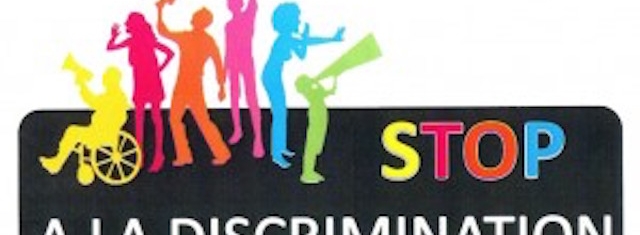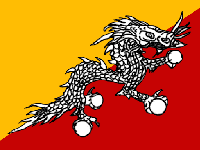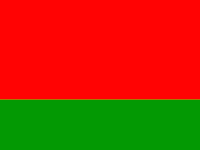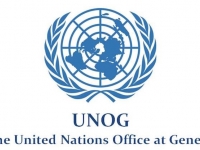News
Statements by Non Governmental Organizations about Anti discrimination
From Canada, Burundi, Bhutan and Belarus

Stop Discrimination Banner (Source: mission locale)
USPA NEWS -
The next public meeting of the Committee about anti-discrimination, will be on 25 October, when it will consider the combined eighth and ninth periodic reports of Canada (CEDAW/C/CAN/8-9). Here are the Statements by Non-Governmental Organizations with regard to Canada, Bhutan, and Belarus.
The next public meeting of the Committee will be on Tuesday, 25 October, at 10 a.m, when it will consider the combined eighth and ninth periodic reports of Canada (CEDAW/C/CAN/8-9). Here are the Statements by Non-Governmental Organizations with regard to Canada, Bhutan, and Belarus.
WOMEN"S ASSOCATION OF CANADA SIAD GIRLS AND WOMEN"S RIGHT WERE DENIED---------------------------
Women´s Association of Canada said that decades of legislative changes and budget cuts to social programmes and benefits meant that women and girls in Canada were denied their rights under the Convention on a daily basis. Since 1995, Canada had fallen from the first to the twenty-fifth place on the United Nations Gender Equality Index, which meant that there was much to do and undo. Women´s structural inequality would not be adequately addressed by piecemeal improvements to a few laws and programmes. Canada needed a comprehensive national response that addressed all forms of discrimination against women and girls, which had to take an intersectional approach and recognize the different experience of inequality by First Nations, Inuit, Métis, racialized, disabled, refugee, immigrant, transgender, lesbian, bisexual, and single parent women and girls.Chair of Indigenous Governance and Canadian Feminist Alliance for International Action took up the issue of discrimination and women´s access to justice, saying that the Federal Government did not consistently require high-quality gender-based or human rights analysis of laws, policies and processes. Despite commitments to end sex discrimination in the Indian Act by restoring status to Indigenous women and their descendants, piecemeal amendments to the Act had not succeeded in restoring status to all those affected. Women faced multiple barriers in accessing justice to enforce their legal rights. Women were the main users of civil legal aid, but the financial support for civil legal aid had dropped dramatically since the 1990s, and legal aid was only available to women living well below poverty line, thus forcing many women to represent themselves in complex family law matters.----------------------------------------------------------------------------------------
BC CEDAW Group: Single Mothers Alliance of BC called the Committee´s attention to financial, administrative and geographic barriers to accessing sexual and reproductive health services. Twenty-four percent of people in Canada lacked prescription drug coverage, and only 17 per cent of the hospitals provided abortion services. Canada Without Poverty said that Canadian women continued to be paid less than their male counterparts and that Canadian gender wage gap was twice the global average. Patterns of job segregation by sex remained unchanged, with women concentrated in traditionally female and lower-paying jobs. More than 70 per cent of women with children were in paid workforce, and yet regulated childcare spaces were available for only 24.9 per cent of the children. Native Women´s Association of Canada stated that Canada had to rethink and overhaul its approach to reaching gender equality and recognize and act upon the many ways in which Indigenous, racialized, disabled, refugee, immigrant, single parent, transgender, lesbian, and bisexual women were discriminated against.----------------------------------------------------------------------------------------------------------------------------
BURUNDI'S LEGISLATION HAD NOT BEEN PROVIDED REMEDIES TO FIGHT DISCRIMINATION--------------------
Global Initiative on Economic, Social and Cultural Rights and Action Aid said that the customary law routinely discriminated against women in relation to land and inheritance rights. The legislation in Burundi still contained some outmoded laws, while some matters, such inheritance, had not been legislated yet. On issues of land and property, remedies available to women were inadequate, and judges were not trained to protect women´s rights. Burundi should enact a national Succession Act to protect the equal inheritance rights of women and nullify those aspects of the customary law which discriminated against women, and put in place safeguards to secure land tenure rights of women through the registration of land procedure.
TARAYANA FOUNDATION STATED THAT BHUTAN MAKES PROGRESS IN FIGHTING DISCRIMINATION----------
Tarayana Foundation stated that Bhutan continued to make significant progress in addressing all forms of discrimination against women, including through the adoption of several key policy instruments to help improve substantive equality. However, gaps remained in the delivery mechanisms translating those polices into action on the ground, while allocation of human and financial resources ought to be enhanced so that measureable progress was made in levelling the playing field. Gender-neutral policies did not acknowledge the differences between the sexes nor did they appreciate their different needs. There was a need for better social security for women in rural areas in particular, as they were often affected by climate change-related natural disasters that increased their vulnerability in the absence of a steady income. Women´s representation in the political sphere was poor and at present there were only six female parliamentarians ““ two out of 25 in the Upper House and four out of 47 in the Lower House.
RENEW Organization called the attention to the fact that abortion was still illegal in Bhutan, forcing many women and girls to use unsafe illegal abortion services. Another issue of concern was the high rate of suicide of women, due to mental health issues, substance abuse, and domestic violence. The use of alcohol was culturally accepted and it amplified the rates of domestic violence. he Penal Code did not have severe punishment for perpetrators of domestic violence and did not prescribe counselling for perpetrators and victims of domestic violence. RENEW Organization had set up the first shelter for victims of domestic violence in Bhutan. Prostitution, human trafficking and lesbian, gay, bisexual, and transgender issues were relatively new, for which development of sensitive approaches was needed.
ANTI -DISCRIMINATION LAWS IN BELARUS WERE STILL LIMITED IN SCOPE------------------------------------------
Coalition of Belarusian non-governmental organizations with the Helsinki Foundation for Human Rights, Poland said that the anti-discrimination laws in Belarus were still limited in scope, declarative and not supported by efficient implementation mechanisms. Belarus had failed to create an independent national human rights institution in accordance with the Paris Principles not it had any other special administrative body vested with the power to consider complaints about human rights violations lodged by women. There was no effective mechanism of protection of the rights of girls and women, especially those vulnerable groups, such as women with disabilities, Muslim women, Roma women, women kept in temporary isolation facilities and pre-trial detention centres.------------------------------------------------------------------------------------------------------
International Centre of Civil Initiatives “Our House“ noted that socially active women often experienced violence from mostly male State officials, the purpose of which was to manipulate, punish or discipline women who were vocal in protecting their rights or the rights of their children. The purpose of the violence was also to reduce women´s social activity, prevent them from political participation, and produce obedient female citizens. The forms of the State violence against socially and politically active women included beating and or threats of sexual assault, involuntary termination of women´s parental rights or threats to do so, illegal and forced placement in mental institutions, and deportation from Belarus.---------
Anti-discrimination Centre “Memorial“ spoke about the situation of families “at social risk“, whose children could be taken away. The decision on declaring a family “at social risk“ was made by a commission, without court involvement. The amount of unjustified decisions in recent years had increased enormously. The criteria were very broad and the members of the commission frequently used their powers to exact revenge on family or a woman, or to threaten, intimidate and manipulate, and was often used against activist mothers, those who criticised teachers, suffered from domestic violence and called the police, or failed to pay for a kinder garden. “Identity and Law“ Initiative Group and the International Lesbian, Gay, Bisexual, Trans and Intersex Association stated that lesbian and bisexual women and transgender persons were among the most stigmatized social groups in Belarus, who faced discrimination and violence in their day-to-day life. A law prohibiting dissemination of information that “discredited the family and marriage-family relations“, adopted this year, opened the path to abuse and harassment targeting lesbian, gay, bisexual and transgender defenders, and also targeting lesbian, bisexual and transgender women and their families. Source UNOG
Liability for this article lies with the author, who also holds the copyright. Editorial content from USPA may be quoted on other websites as long as the quote comprises no more than 5% of the entire text, is marked as such and the source is named (via hyperlink).









